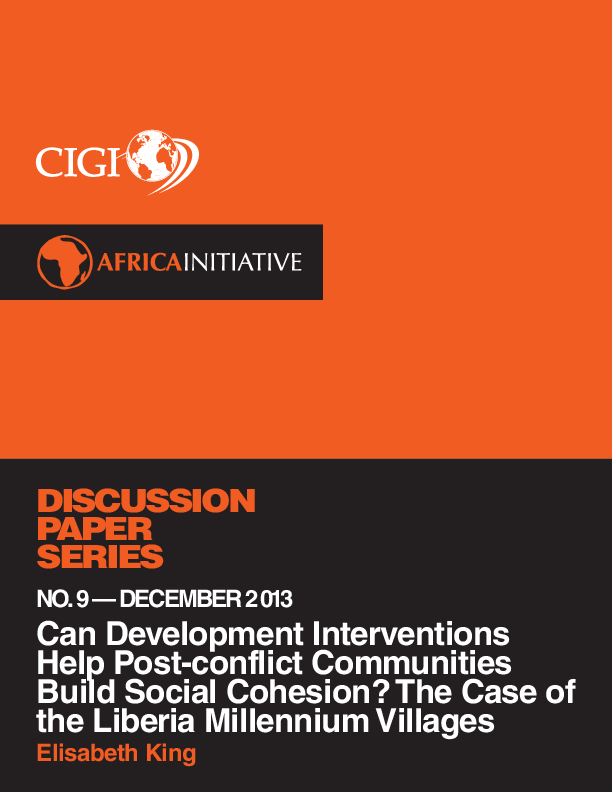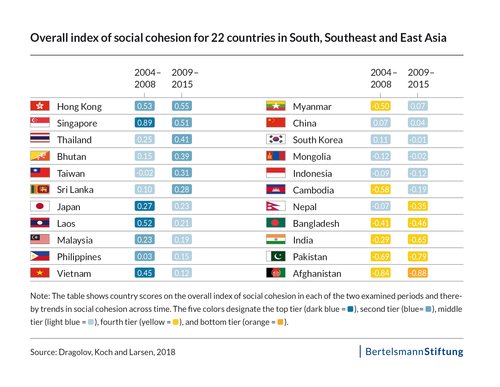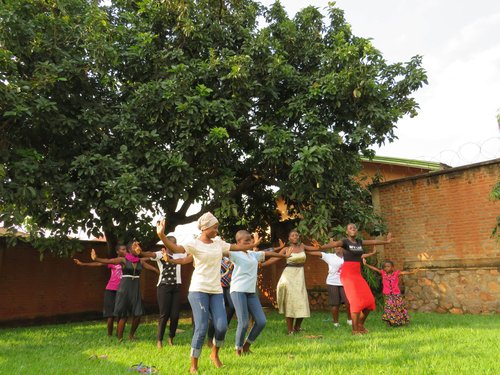Can development interventions help post-conflict communities build social cohesion? The case of the Liberia millennium villages
Key facts
Participation
Cooperation
Connectedness
Development cooperation
Summary
This paper evaluates the efforts of one international development intervention — the Kokoyah Millennium Villages Project (KMVP) — to improve welfare and build social cohesion in post-conflict Liberia. This study is based on a preliminary analysis of survey data from a quasiexperimental, difference-in-differences (DID) research design, and shows that social cohesion was already higher than anticipated before the project began. Despite operational challenges with implementation of the KMVP, complaints about the project, and lack of improved perceptions of welfare, there is evidence that the KMVP had positive effects on some measures of social cohesion and no evidence of adverse effects, yet no changes on some factors that may be important to contribute to development. This paper demonstrates that DID measures and quasi-experimental designs that use appropriate comparison groups can yield important insights in social science research conducted in complex and changing contexts such as a post-civil war setting. This paper seeks to foster a conversation about the many relationships between development and social cohesion (particularly in post-conflict contexts), the possibilities and challenges for researchers in studying these relationships and the importance of doing so for intended beneficiaries on the ground.

Explore the hub further



